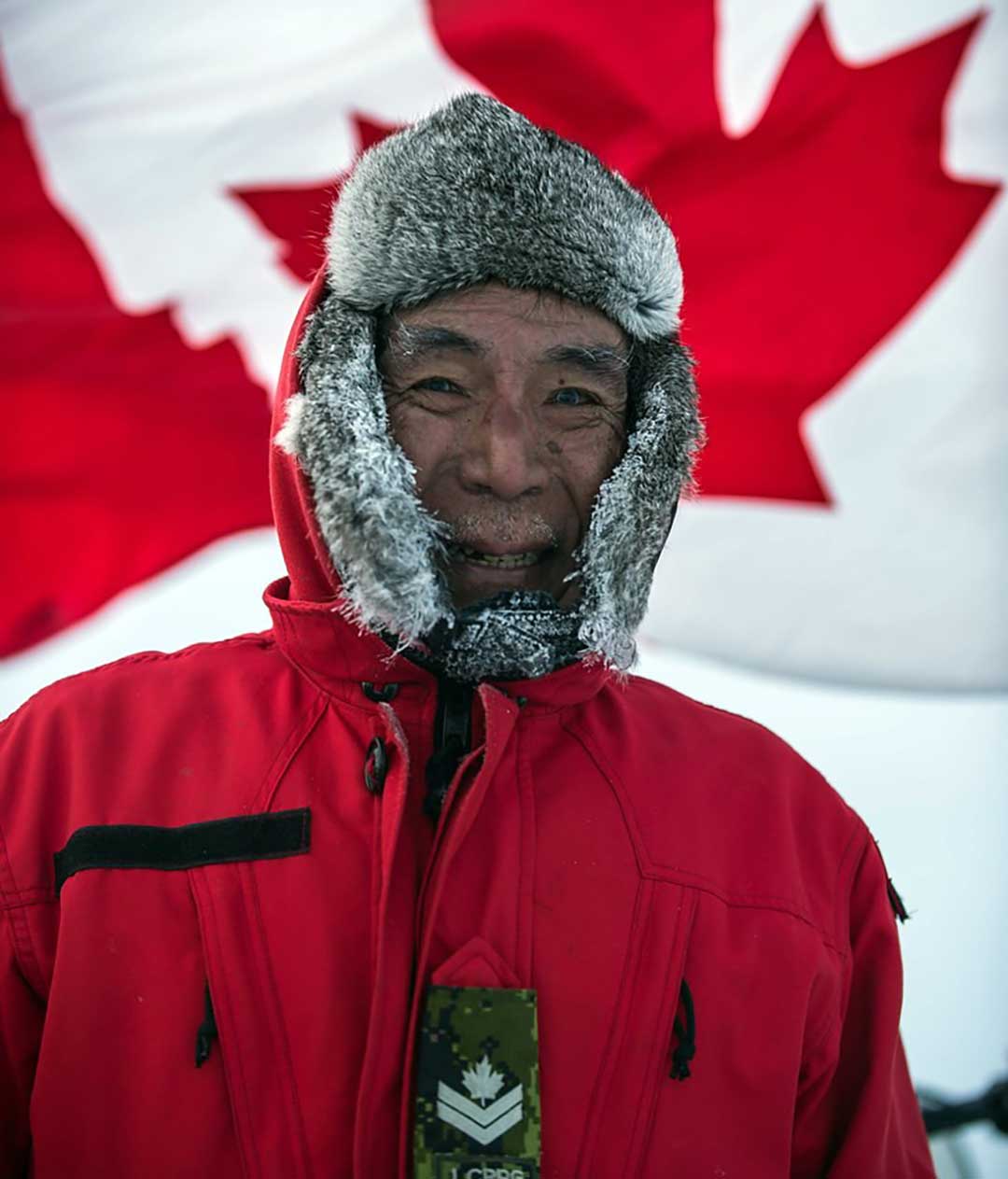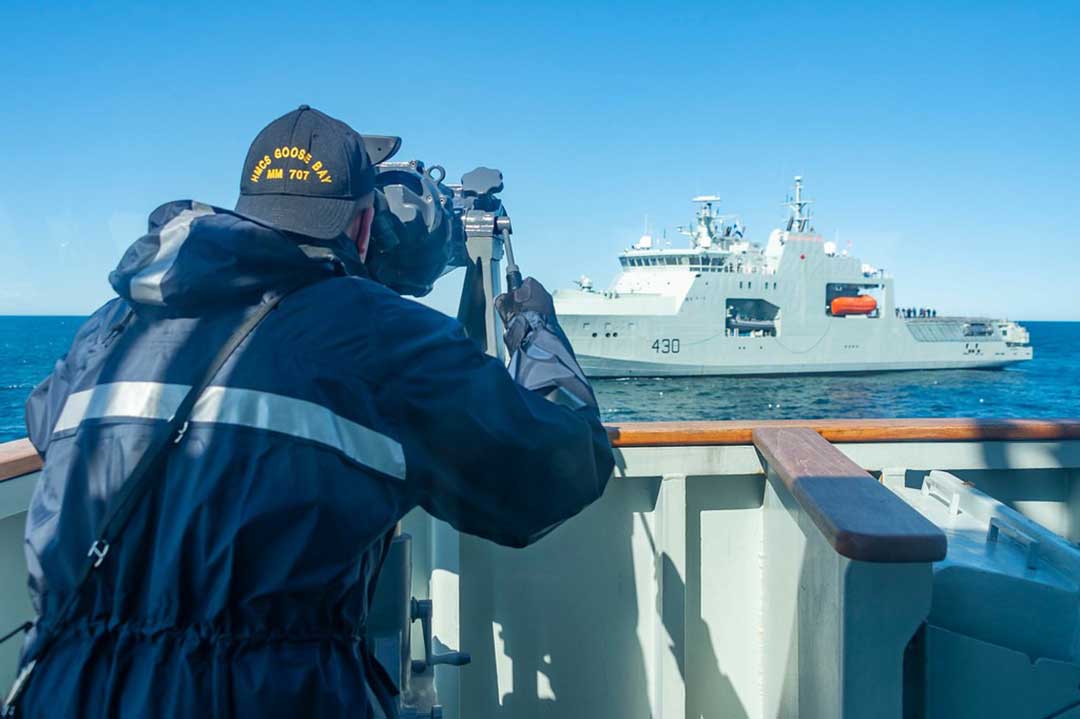MAJ. SUSAN MAGILL/JOINT TASK FORCE NORTH
The Canadian Armed Forces (CAF) has operated in the Canadian north for more than a century. This vast region encompasses 75% of Canada’s coastlines, almost 8 million square kilometers of land and sea, including 36,563 islands. Over 70 communities exist in our north, but this accounts for only 0.3% of Canada’s population.
The effects of climate change, globalization and advanced technologies have increased access and international interest in Canada’s Arctic. While growing activity could create economic benefits for Canada, it could also increase strategic competition, environmental risks, search and rescue requirements, and illegal or undeclared activities in the region.
The CAF is committed to a sustained and increased presence in the Arctic for national and continental defense. Canadian Joint Operations Command has six regional joint task forces, and Joint Task Force North (JTFN) has operational command and control of task forces deployed in the north. JTFN has four primary roles: demonstrate a visible and persistent presence, domain awareness through surveillance and control, support northern peoples and communities, and contribute to whole-of-government cooperation. The Inuit word for polar bear is nanook, and Operation Nanook is the CAF’s signature northern operation designed to meet these four primary roles.

Nanook Operations – A Success Story
Operation Nanook is a series of comprehensive, joint, interagency and multinational activities designed to exercise the defense of Canada and secure our northern regions. Operation Nanook strengthens our knowledge of the north; provides opportunities to operate with Arctic allies and partners; fortifies close partnerships with federal, territorial and indigenous governments; and fosters cooperation with local communities.
Operation Nanook hones our ability to operate using unique skillsets, local knowledge, expeditionary support and equipment, all designed to operate effectively in extreme weather conditions. Operation Nanook-Nunalivut is the only Nanook activity that occurs in the winter. It demonstrates our ability to project and sustain forces in the Arctic under the harshest conditions, and test capabilities and interoperability with our allies. Operation Nanook-Tatigiit is a whole-of-government operation focused on addressing key threats identified by territorial governments.
Operation Nanook-Nunakput works to increase our presence and surveillance along the Northwest Passage in cooperation with our partners. Operation Nanook-Tuugalik demonstrates the Royal Canadian Navy’s ability to conduct surveillance and presence patrols in the north alongside partners and allies.
Additional Arctic operations include Operation Limpid, the routine watch over Canada’s aerospace, maritime and land domains, and Operation Nevus, the annual maintenance of the High Arctic Data Communications System.
The CAF presence in the north includes 1,350 Canadian Rangers in 65 northern communities. Canadian Rangers perform surveillance, patrol, and ground search and rescue duties upon request, and are our best source of local and traditional knowledge. The Canadian Rangers play a critical role in Arctic security by providing support to sovereignty operations, maintaining a CAF presence in local communities and assisting with community disasters. (Pictured: Members of the U.S. Navy and Coast Guard conduct a boarding exercise aboard HMCS Glace Bay during Operation Nanook in 2020.)

Climate Change
One of the most immediate and visible results of climate change is the increased frequency, severity and magnitude of extreme weather events. Climate change could threaten the infrastructure and supply systems that enable a military force. Adaptation and policies are necessary to mitigate these threats to prevent any compromise of force effectiveness and resilience. Adapting to the threat of climate change will require the CAF and its allies to reduce their environmental impact even as they are called upon to respond to its consequences. Arctic collaboration is crucial and cooperating with Arctic partners during military operations is key to establishing and maintaining practices that prioritize the safety of local populations and the preservation of the environment.
Partnerships
Canada’s defense policy, ”Strong, Secure, Engaged,” commits the CAF to working with domestic and international partners to address common safety, security and defense challenges. “Given the vast territory, sparse population, and finite resources, the key to success in the north are mutually beneficial partnerships with both international and domestic partners,” Brig. Gen. Pascal Godbout, JTFN commander, said. “We are thankful that Canada shares the Arctic with a number of like-minded allies and partners.”
Canada’s contributions to Arctic security are a core part of the Canada-United States defense relationship. The CAF regularly collaborates with U.S. military forces during Arctic operations. The minister of national defense and secretary of defense issued a joint statement in August 2021 to guide collaboration on the modernization of the North American Aerospace Defense Command and to lay out a series of priority areas for investing. These efforts will play a key role to enhance our situational awareness and modernize command and control systems.
Our allies and partners are all seized with the security implications of climate change, and we continue to work together to ensure the resilience of our forces to respond and adapt to the changing operating environment in the north.
IMAGE CREDIT: CPL. DAVID VELDMAN/CANADIAN ARMED FORCES


Comments are closed.